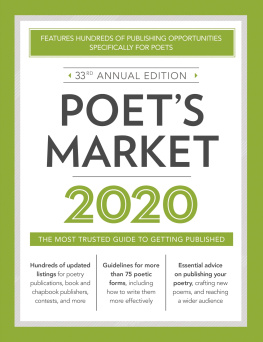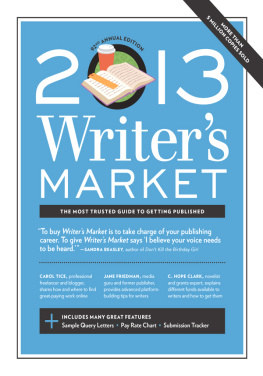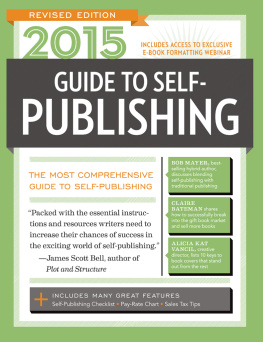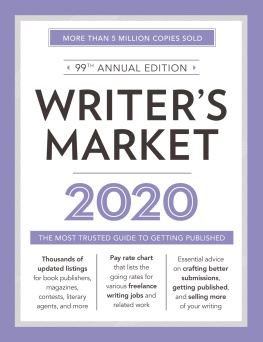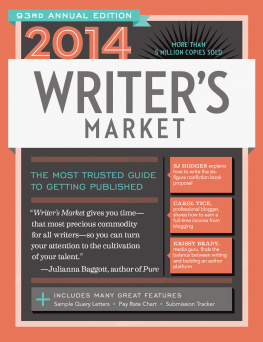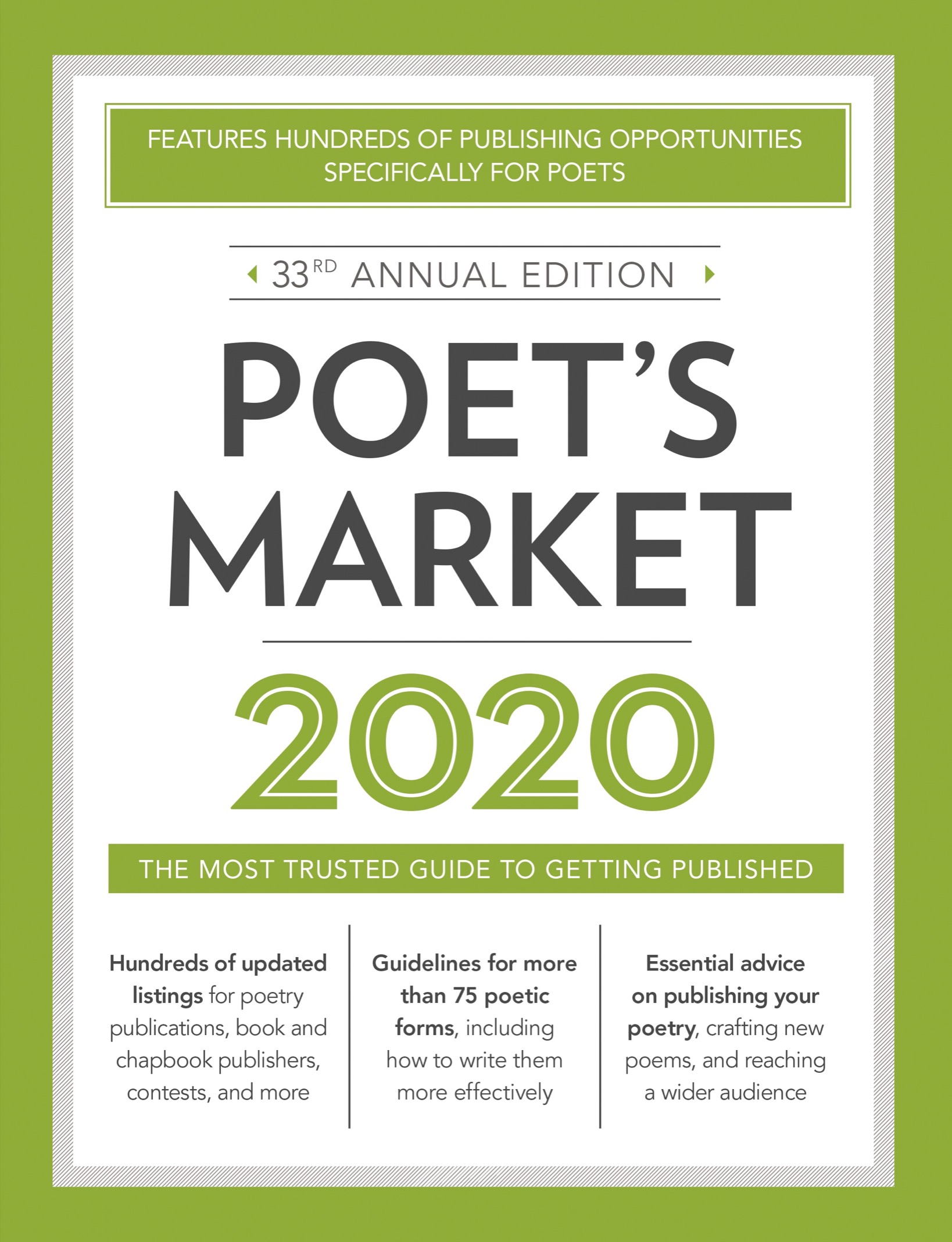FROM THE EDITOR
The great thing about Poets Market is that it covers so many facets of the poetic world. First and foremost, its a directory of publishing opportunities for poets with hundreds of listings for book and chapbook publishers, magazines and journals, contests and awards, and more. In fact, thats the reason most folks buy this book. But theres so much more!
This edition of Poets Market includes advice on the business and promotion of poetry. There are articles on blogging, social media, a 30-day platform challenge, anatomy of a poetry book, how to increase odds of publication, and more.
Plus, theres an excellent craft section, especially the poetic forms article that now boasts more than 75 poetic forms. Thats in addition to 101 poetry prompts, how to finish poems, freshen your poetry, and more.
So yeah, its an incredible resource thats dedicated to helping poets get published. But beyond that, its dedicated to connecting poets with the world of poetry.
Until next time, keep poeming!
Robert Lee Brewer
Senior Content Editor, Poets Market
twitter.com/robertleebrewer
BUSINESS OF POETRY
HOW TO USE POETS MARKET
Delving into the pages of Poets Market implies a commitmentyouve decided to take that big step and begin submitting your poems for publication. How do you really begin, though? Here are eight quick tips to help make sense of the marketing/submission process:
1. BE AN AVID READER. The best way to hone your writing skills (besides writing) is to immerse yourself in poetry of all kinds. Its essential to study the masters; however, from a marketing standpoint, its equally vital to read what your contemporaries are writing and publishing. Read journals and magazines, chapbooks and collections, anthologies for a variety of voices; scope out the many poetry sites on the Internet. Develop an eye for quality, and then use that eye to assess your own work. Dont try to publish until you know youre writing the best poetry youre capable of producing.
2. KNOW WHAT YOU LIKE TO WRITEAND WHAT YOU WRITE BEST. Ideally, you should be experimenting with all kinds of poetic forms, from free verse to villanelles. However, theres sure to be a certain style with which you feel most comfortable, that conveys your true voice. Whether you favor more formal, traditional verse or avant-garde poetry that breaks all the rules, you should identify which markets publish work similar to yours. Those are the magazines and presses you should target to give your submissions the best chance of being read favorablyand accepted.
3. LEARN THE BUSINESS OF POETRY PUBLISHING. Poetry may not be a high-paying writing market, but theres still a right way to go about the business of submitting and publishing poems. Learn all you can by reading writing-related books and magazines. Read the articles in this book for plenty of helpful advice. Surf the Internet for a wealth of sites filled with writing advice, market news and informative links.
4. RESEARCH THE MARKETS. Study the listings in Poets Market thoroughly; these present submission guidelines, editorial preferences and editors comments as well as contact information (names, postal and e-mail addresses, and website URLs). In addition, the indexes in the back of this book provide insights into what an editor or publisher may be looking for.
However, studying market listings alone wont cut it. The best way to gauge the kinds of poetry a market publishes is to read several issues of a magazine/journal or several of a presss books to get a feel for the style and content of each. Websites may include poetry samples, reviews, archives of past issues, exclusive content, and especially submission guidelines. (If the market is an online publication, the current issue will be available in its entirety.) Submission guidelines are pure gold for the specific information they provide. However you acquire themby SASE or e-mail, online, or in a magazine itselfmake them an integral part of your market research.
5. START SLOWLY. It may be tempting to send your work directly to The New Yorker or Poetry, but try sending your work to less competitive markets as well. As you gain confidence and experience (and increased skill in your writing), you can move on to more recognized markets. Although it may tax your patience, slow and steady progress is a proven route to success.
KEY TO ICONS & ABBREVIATIONS

| market does not accept unsolicited submissions |

| Canadian market |

| market located outside of the U.S. and Canada |

| market pays |

|

